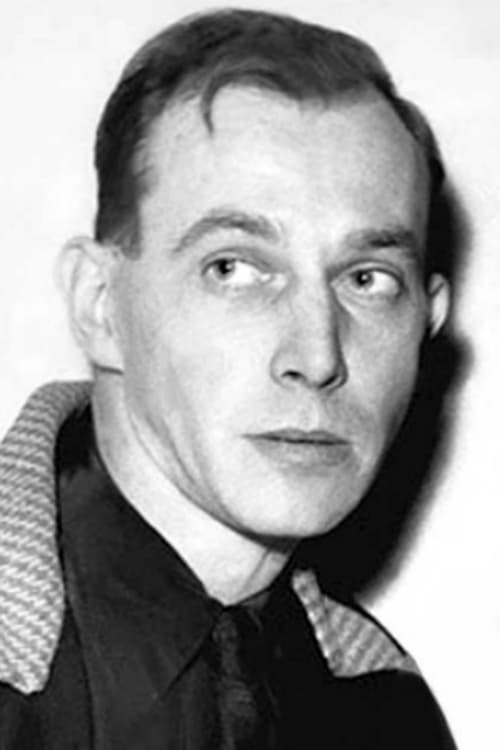
Special Effects
Ten years after the death of iconic French filmmaker, Chris Marker. This filmmaker, hoping to rediscover that unique sensibility against the uncertainty of the new century. Returns to the places synonymous with those incomparable and unforgettable films. From the cat cemetery of Sans Soleil, to the mausoleum of The Last Bolshevik. The caves of Level Five, to the rooftops of The Case of the Grinning Cat. All the while, casting a biographical portrait and thematic rerun, of one of the 20th centuries greatest and most misunderstood filmmakers.

Kaibyō
Ten years after the death of iconic French filmmaker, Chris Marker. This filmmaker, hoping to rediscover that unique sensibility against the uncertainty of the new century. Returns to the places synonymous with those incomparable and unforgettable films. From the cat cemetery of Sans Soleil, to the mausoleum of The Last Bolshevik. The caves of Level Five, to the rooftops of The Case of the Grinning Cat. All the while, casting a biographical portrait and thematic rerun, of one of the 20th centuries greatest and most misunderstood filmmakers.
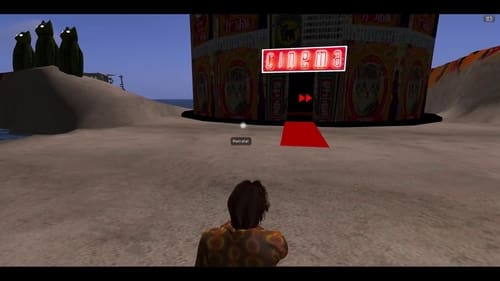
Self
A desktop documentary about the online afterlife of the late French filmmaker, Chris Marker.

Story
A radical re-imagining of French auteur Chris Marker's masterpiece.

Writer
'Life and Freaky Times of Uncle Luke' A modern Miami adaptation of the 1962 French short film 'La Jetee', the film recounts Luke's (Uncle Luke, legendary rapper from the hip-hop group 2 Live Crew) rise to fame as he changes the face of hip-hop and fights for first amendment rights, and later as he ushers Miami into a golden era of peace and prosperity as Mayor. Everything changes when a nuclear meltdown at Turkey Point Power Plant turns Miami into a radioactive wasteland filled with mutants, and Luke is the only survivor left unscathed. Directed by visual and performance artist Jillian Mayer, the entire movie takes place in custom built installations which distort and play with visual perspectives

Self
A rare and beautiful moment in cinema where two friends — who happen to be pioneering, legendary filmmakers from the French New Wave — meet in real life and in a virtual world. In the film, which was shot at two points between 2009-2011, Agnès Varda visits Chris Marker in his studio, a few years before his passing. She admires his magnificent mess, snooping around for details that reveal “the hidden side of Marker’s work”: a labyrinth of wires and computer equipment, a collection of images, magazines, and books, and — of course — cats. The film takes on a wonderful surrealist turn when Varda creates an avatar to meet Marker’s avatar in the online virtual world of Second Life.

Director
Video on the mass media response to the bardo-traversing of Steve Jobs. Long live the archive and the archivist.

Editor
In 2012 the Vienna International Film Festival invited french filmmaker Chris Marker to direct the annual festival trailer .

Director
In 2012 the Vienna International Film Festival invited french filmmaker Chris Marker to direct the annual festival trailer .

Director
An historical "if"

Director
Stopover in Dubai is a chillingly simple – and riveting – found-footage documentary on a reconstructed murder. The original film was produced by the Dubai State Security service, edited from CCTV footage recorded in and around the Dubai hotel where Mahmoud al-Mabhouh was found dead, his room locked from the inside. Al-Mabhoub was a founder of a military branch of Hamas, and was reportedly on Mossad's hit list (though he had other enemies as well). The retrieved footage tracks the team of no less then 26 assassins on their way to the kill. Marker took the film as it is and replaced the news program’s generic, royalty-free, techno-lite soundtrack with a haunting, ominous string composition written by Henryk Górecki for the Kronos Quartet.

Director
What else ?

Writer
Short film about violence in London.

Director
Short film about violence in London.

Director
"There’s just no other way to say this: Chris Marker has built a museum in the sky of Second Life. That’s right, Second Life—the vast virtual realm, which since 2003 has enabled users to build, explore, and interact via avatars within a tabula rasa of cyber-geography. It’s not just for weird virtual sex anymore: now it has a touch of Old Media class. At the coordinates 187, 61, 39, on some far-off shimmering shores of “the grid,” lies the island of Ouvroir (which is actually an archipelago). This digital Xanadu is strewn with cat-shaped coves, roving humpbacks, a castle keep, and a downed 747; a massive red orb hovers in the pixelated cerulean firmament above . . . Le Musée de Marker!"

Self
What was your first desire? What did you long for most? Arielle Dombasle put these questions to a wide circle of famous people.

Director
Excerpts from Alain Resnais' film NIGHT AND FOG served as evidence during the trial against Adolf Eichmann in Jerusalem. On the evening before the trial, the defendant Eichmann was shown the entire film. Leo Hurwitz, the director responsible for video recording the trial, filmed this unusual projection in a kind of shot-countershot procedure without sound and in black and white. Nearly fifty years later, French filmmaker Chris Marker, who had already worked as an assistant director on NIGHT AND FOG, assembled these shots with the original color images and sounds of the French film: Henchman Glance.

Director
Pictures, collages, well, call'em XPLUGS

Writer

Director

Writer
Cat film by Chris Marker

Director
Cat film by Chris Marker

Cinematography
Chris Marker's cat and rat.

Director
Chris Marker's cat and rat.

Writer
Paris 2002. Yellow cats appear on the walls. Chris Marker is looking for these mysterious cats and captures with his camera the political and international events of these last two years (war in Iraq...).

Director
Paris 2002. Yellow cats appear on the walls. Chris Marker is looking for these mysterious cats and captures with his camera the political and international events of these last two years (war in Iraq...).
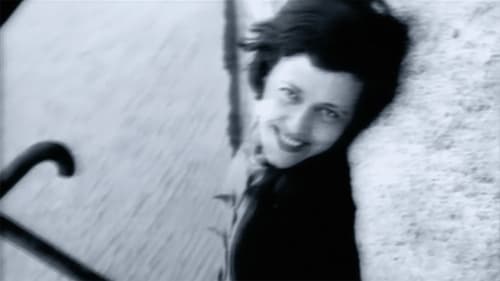
Music
Through photos made by the French photographer Denise Bellon, a personal history of France.

Writer
Through photos made by the French photographer Denise Bellon, a personal history of France.

Director
Through photos made by the French photographer Denise Bellon, a personal history of France.

Director
This is where sizzling fire still smoldering in a war which everybody talked a lot and which we rarely had the opportunity to hear the actors. Once removed their image of poor refugees on the roads, the Kosovars have strangely disappeared from the media world and Kosovo is again an abstraction. Bajram Rexhepi is entirely concrete. Surgeon by profession, he's a surgeon that fought the war in the ranks of the KLA, the Kosovo Liberation Army. With the upcoming of peace, his unquestioned authority made him the elected mayor of Mitrovica. The use made of this authority may undermine some misconceptions.

Director
During the solar eclipse of August 11, 1999, Chris Marker documents the French public looking up to the skies, with many of them wearing eclipse glasses.
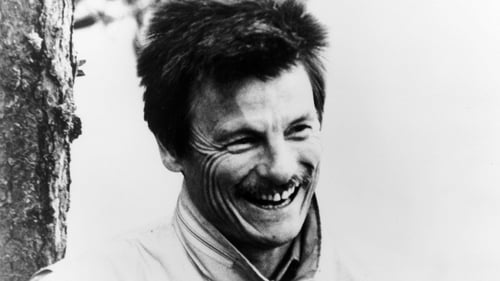
Editor
A documentary about the Russian filmmaker Andrei Tarkovsky. The film was an episode of the French documentary film series Filmmakers of our time. The title of the film is a play on the title of Solzhenitsyn's novella One Day in the Life of Ivan Denisovich.

Writer
A documentary about the Russian filmmaker Andrei Tarkovsky. The film was an episode of the French documentary film series Filmmakers of our time. The title of the film is a play on the title of Solzhenitsyn's novella One Day in the Life of Ivan Denisovich.

Cinematography
A documentary about the Russian filmmaker Andrei Tarkovsky. The film was an episode of the French documentary film series Filmmakers of our time. The title of the film is a play on the title of Solzhenitsyn's novella One Day in the Life of Ivan Denisovich.

Self (voice) (uncredited)
A documentary about the Russian filmmaker Andrei Tarkovsky. The film was an episode of the French documentary film series Filmmakers of our time. The title of the film is a play on the title of Solzhenitsyn's novella One Day in the Life of Ivan Denisovich.

Director
A documentary about the Russian filmmaker Andrei Tarkovsky. The film was an episode of the French documentary film series Filmmakers of our time. The title of the film is a play on the title of Solzhenitsyn's novella One Day in the Life of Ivan Denisovich.
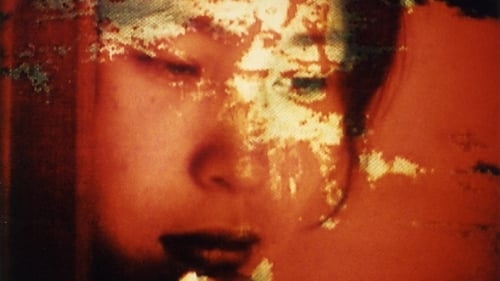
Chris
The French computer programmer Laura inherits the task of making a computer game of the Battle of Okinawa in Japan during World War 2. She searches the Internet for information on the battle, and interviews Japanese experts and witnesses. The extraordinary circumstances of the Battle of Okinawa lead Laura to reflect deeply on her own life and humanity in general, particularly the influence of history and memories.

Director of Photography
The French computer programmer Laura inherits the task of making a computer game of the Battle of Okinawa in Japan during World War 2. She searches the Internet for information on the battle, and interviews Japanese experts and witnesses. The extraordinary circumstances of the Battle of Okinawa lead Laura to reflect deeply on her own life and humanity in general, particularly the influence of history and memories.

Writer
The French computer programmer Laura inherits the task of making a computer game of the Battle of Okinawa in Japan during World War 2. She searches the Internet for information on the battle, and interviews Japanese experts and witnesses. The extraordinary circumstances of the Battle of Okinawa lead Laura to reflect deeply on her own life and humanity in general, particularly the influence of history and memories.

Director
The French computer programmer Laura inherits the task of making a computer game of the Battle of Okinawa in Japan during World War 2. She searches the Internet for information on the battle, and interviews Japanese experts and witnesses. The extraordinary circumstances of the Battle of Okinawa lead Laura to reflect deeply on her own life and humanity in general, particularly the influence of history and memories.

Editor

Director

Editor
A young man, who served as a peacekeeper in Bosnia and Herzegovina for a few months during the war, recounts his experiences. Throughout the film, we only see his face filmed in close-up, along with a few photos. The interview acts as a strong testimony to the failure of the international community in the Yugoslav crisis.

Writer
A young man, who served as a peacekeeper in Bosnia and Herzegovina for a few months during the war, recounts his experiences. Throughout the film, we only see his face filmed in close-up, along with a few photos. The interview acts as a strong testimony to the failure of the international community in the Yugoslav crisis.

Director
A young man, who served as a peacekeeper in Bosnia and Herzegovina for a few months during the war, recounts his experiences. Throughout the film, we only see his face filmed in close-up, along with a few photos. The interview acts as a strong testimony to the failure of the international community in the Yugoslav crisis.

Director
Originally displayed as part of an installation consisting of one metal stand, 5 monitors, 5 laser disc players, a computer face interbox, 5 video discs with 20 min. sequences: The Journey, The Face, Captions, The Gesture, The Waltz; 18 B&W video stills, 10 film posters, and a soundtrack: "The Perfect Tapeur", solo piano pieces lasting 59 min. 32 sec.

Director
Chris Marker’s Bullfight in Okinawa is a bizarre, 4 min documentary that introduces viewers to Japan’s subterranean past time of bullfighting. Part of Markers five-film “Bestiary” series, Bullfight employs observational documentary techniques and, in particular, Marker’s camerawork is impressive — tight framed shots, free-hand pans, and quick zooms all contribute to the film’s urgent sense of tension — and, if it weren’t for the suspense inducing music, this short-gem would be damn close to pure objective documentary cinema.

Editor
A still, highly overexposed shot of a car bridge and the river below. A cinematic haiku by Chris Marker.

Director
A cinematic haiku by Chris Marker.

Director
A still, highly overexposed shot of a car bridge and the river below. A cinematic haiku by Chris Marker.

Director
A cinematic haiku by Chris Marker.

Writer
A collection of three short 'haiku videos' by Chris Marker. The first haiku, 'Yanka / Tchaika', shows the river Seine passing under a bridge. A bird in flight stays motionless in the air. The second haiku, 'Owl Gets in Your Eyes', shows Catherine Belkhodja smoking a cigarette while a superimposed shot of an owl in flight fades in and out over her face. The third haiku is a tribute to the Lumière brothers. In an homage to their style, Marker documents an event of daily life in only a minute, choosing to film work on the Petite Centure (a Parisian railway) in May 1994. Due to the work, no train actually passes and we are simply shown desolate train tracks, making the haiku a dry parody of 'L'Arrivée d'un train en gare de La Ciotat'.

Producer
A collection of three short 'haiku videos' by Chris Marker. The first haiku, 'Yanka / Tchaika', shows the river Seine passing under a bridge. A bird in flight stays motionless in the air. The second haiku, 'Owl Gets in Your Eyes', shows Catherine Belkhodja smoking a cigarette while a superimposed shot of an owl in flight fades in and out over her face. The third haiku is a tribute to the Lumière brothers. In an homage to their style, Marker documents an event of daily life in only a minute, choosing to film work on the Petite Centure (a Parisian railway) in May 1994. Due to the work, no train actually passes and we are simply shown desolate train tracks, making the haiku a dry parody of 'L'Arrivée d'un train en gare de La Ciotat'.

Director
A collection of three short 'haiku videos' by Chris Marker. The first haiku, 'Yanka / Tchaika', shows the river Seine passing under a bridge. A bird in flight stays motionless in the air. The second haiku, 'Owl Gets in Your Eyes', shows Catherine Belkhodja smoking a cigarette while a superimposed shot of an owl in flight fades in and out over her face. The third haiku is a tribute to the Lumière brothers. In an homage to their style, Marker documents an event of daily life in only a minute, choosing to film work on the Petite Centure (a Parisian railway) in May 1994. Due to the work, no train actually passes and we are simply shown desolate train tracks, making the haiku a dry parody of 'L'Arrivée d'un train en gare de La Ciotat'.

Director
An oddly rhythmic and balletic tape emerges from the juxtaposition of an elephant lumbering around his enclosure at the zoo and elegant music by Stravinsky.

Director
In a future world devastated by disease, a convict is sent back in time to gather information about the man-made virus that wiped out most of the human

Editor
A documentary on Soviet filmmaker Aleksandr Medvedkin, examining his tumultuous career, the rediscovery of his masterpiece Happiness, and Russia's struggles over the course of the 20th Century.

Cinematography
A documentary on Soviet filmmaker Aleksandr Medvedkin, examining his tumultuous career, the rediscovery of his masterpiece Happiness, and Russia's struggles over the course of the 20th Century.

Writer
A documentary on Soviet filmmaker Aleksandr Medvedkin, examining his tumultuous career, the rediscovery of his masterpiece Happiness, and Russia's struggles over the course of the 20th Century.

Director
A documentary on Soviet filmmaker Aleksandr Medvedkin, examining his tumultuous career, the rediscovery of his masterpiece Happiness, and Russia's struggles over the course of the 20th Century.

Producer
Made entirely on Roger Wagner's HyperStudio software, Chris Marker explores set theory, using Noah's Ark as an example.

Director
Made entirely on Roger Wagner's HyperStudio software, Chris Marker explores set theory, using Noah's Ark as an example.

Writer
Some months after the fall of the Berlin wall, during the time of federal elections in Germany in 1990, Chris Marker shot this passionate documentary, reflecting the state of the place and its spirit with remarkable acuity.

Editor
Some months after the fall of the Berlin wall, during the time of federal elections in Germany in 1990, Chris Marker shot this passionate documentary, reflecting the state of the place and its spirit with remarkable acuity.

Director
Some months after the fall of the Berlin wall, during the time of federal elections in Germany in 1990, Chris Marker shot this passionate documentary, reflecting the state of the place and its spirit with remarkable acuity.

Director
As the perspective shifts from display to imprisonment, a montage of images from a zoo takes on increasing significance and pathos.

Director
From Chris Marker's collection Bestiaire aka Petit Bestiaire (1990), consisting of three video haikus.

Director
Berlin 1990 travels the streets and the political landscape of the recently re-unified Berlin. In the tumultuous atmosphere of 1990, we watch Berliners walk through check points manned by soldiers, past street vendors selling sausages and "actual" pieces of the Berlin Wall, and watch as they watch the election results come in for another "new" Germany.

Director
A document of Perestroika, to be viewed as (nearly) unedited rushes of a voyage to Moscow, preserved by compatriot Costa-Gavras. Says Émilie Cauquy of the French Cinémathèque, "Astonishing unpublished travel diary, shot by Chris Marker in analog video on the occasion of a screening of L'Aveu in Moscow in 1990 [...] Armed with his camcorder, Marker films and records the comments, takes on the role of contemporary capital according to this unique ethnographic method that he has perfected".

Lui-même
A document of Perestroika, to be viewed as (nearly) unedited rushes of a voyage to Moscow, preserved by compatriot Costa-Gavras. Says Émilie Cauquy of the French Cinémathèque, "Astonishing unpublished travel diary, shot by Chris Marker in analog video on the occasion of a screening of L'Aveu in Moscow in 1990 [...] Armed with his camcorder, Marker films and records the comments, takes on the role of contemporary capital according to this unique ethnographic method that he has perfected".

Director
Chris Marker’s work, "Zapping Zone (Proposals for an imaginary television)" was produced by the Mnam-Centre Pompidou in the framework of the exhibition "Passages de l’Image" in 1990. Composed of 13 television sets, 7 computer stations (Apple II GS), 4 luminous displays containing 80 slides and 10 photomontages, this large interactive installation marked the entry of digital script into the art field at the dawn of the World Wide Web. Up until 2007, and Chris Marker’s last presentation before his death, the artist produced endlessly, building up an archive of 183 disks of work.

Cinematography
This idiosyncratic view of Tokyo begins with a live mannequin in a store window and French actress Arielle Dombasle chatting with Marker as they wander around Tokyo. After Dombasle departs, the tape continues with footage from the Tokyo subway and an indoor market. Marker punctuates the tape throughout with playful visual and sound edits.

Editor
This idiosyncratic view of Tokyo begins with a live mannequin in a store window and French actress Arielle Dombasle chatting with Marker as they wander around Tokyo. After Dombasle departs, the tape continues with footage from the Tokyo subway and an indoor market. Marker punctuates the tape throughout with playful visual and sound edits.

Self (voice) (uncredited)
This idiosyncratic view of Tokyo begins with a live mannequin in a store window and French actress Arielle Dombasle chatting with Marker as they wander around Tokyo. After Dombasle departs, the tape continues with footage from the Tokyo subway and an indoor market. Marker punctuates the tape throughout with playful visual and sound edits.

Director
This idiosyncratic view of Tokyo begins with a live mannequin in a store window and French actress Arielle Dombasle chatting with Marker as they wander around Tokyo. After Dombasle departs, the tape continues with footage from the Tokyo subway and an indoor market. Marker punctuates the tape throughout with playful visual and sound edits.

Director
Chris Marker films a cat reacting to the sound of a piano playing.

Director
A wonderful tribute to the great Simone Signoret by Chris Marker. Rare documentary, made by movie clips and narration, with many lines Simone Signoret wrote for her autobiography 'La nostalgie n'est plus ce qu'elle était' (Nostalgia is not what it was anymore).

Director
A portrait of the Chilean artist Roberto Matta leading Marker on a wise and funny private guided tour of his solo exhibition at the Pompidou Center.
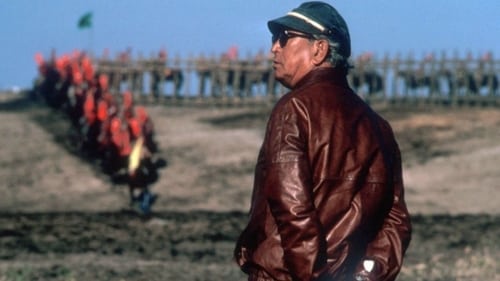
Writer
In 1985, Chris Marker traveled to Japan to attend the filming of Ran, directed by Akira Kurosawa. Marker analyzes the progress of filming; the infinite patience of a team under the orders of a meticulous director down to the smallest detail; the antithetical mixture of the modern with the traditional; of the real with the fictitious; of life with cinema… and literature.

Director
In 1985, Chris Marker traveled to Japan to attend the filming of Ran, directed by Akira Kurosawa. Marker analyzes the progress of filming; the infinite patience of a team under the orders of a meticulous director down to the smallest detail; the antithetical mixture of the modern with the traditional; of the real with the fictitious; of life with cinema… and literature.

Editor
In 1985, Chris Marker traveled to Japan to attend the filming of Ran, directed by Akira Kurosawa. Marker analyzes the progress of filming; the infinite patience of a team under the orders of a meticulous director down to the smallest detail; the antithetical mixture of the modern with the traditional; of the real with the fictitious; of life with cinema… and literature.

Narrator (voice)
In 1985, Chris Marker traveled to Japan to attend the filming of Ran, directed by Akira Kurosawa. Marker analyzes the progress of filming; the infinite patience of a team under the orders of a meticulous director down to the smallest detail; the antithetical mixture of the modern with the traditional; of the real with the fictitious; of life with cinema… and literature.
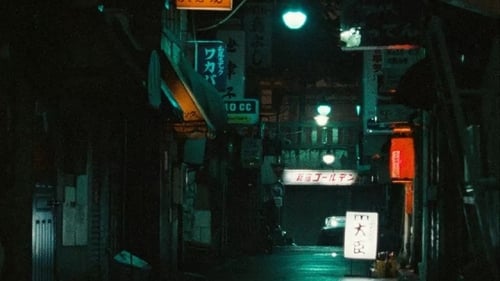
Self (uncredited)
O diretor alemão Wim Wenders viaja até o Japão para explorar o mundo de um de seus “mestres” do cinema, o célebre diretor japonês Yasujiro Ozu. Ele nos apresenta suas próprias visões sobre o país, alternando com encontros e entrevistas a colegas de trabalho e ao elenco dos filmes de Ozu.

Director
In the fall of 1985, Christo "packed" the Pont Neuf. In the space of a week, enthusiasts, critics and curious people drastically change the perception of this place whose presence has never been felt as much as since it was veiled. And that's what Christo wanted.

Director
Filmed on the 100th anniversary of the labour union laws in France, the quasi-science fiction film is set in 2084. A robot moderator helps us look 'back' at the contemporary labour situation and different directions the movement could take.

Writer
Per Mubi: In this short film, Marker critiques, from a Socialist perspective, the role of the trade union movement in France at the dawn of the era of global web economies.

Director
Per Mubi: In this short film, Marker critiques, from a Socialist perspective, the role of the trade union movement in France at the dawn of the era of global web economies.
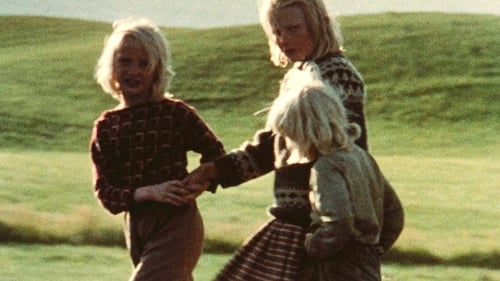
Writer
Através de cartas escritas por um amigo, Chris Marker compõe a memória, através de pensamentos e reflexões. A memória impossível e louca de São Francisco, a memória através de um click de uma foto em Guiné-Bissau. Homenageando Tarkovsky, Hitchcock, Marker traça sua própria memória.

Director
Através de cartas escritas por um amigo, Chris Marker compõe a memória, através de pensamentos e reflexões. A memória impossível e louca de São Francisco, a memória através de um click de uma foto em Guiné-Bissau. Homenageando Tarkovsky, Hitchcock, Marker traça sua própria memória.
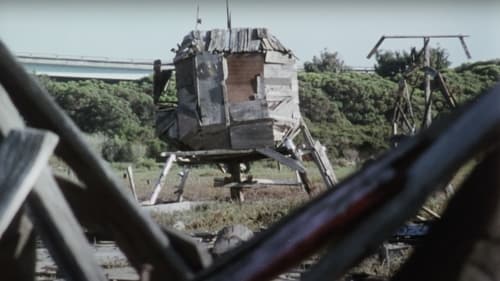
Original Music Composer
A short film that shows Boundless, Surreal objects that are juxtaposed with our present World. Cars, Motorways, noise of our modern society; A giant city in the distance - all that shrouds this lonely and forgotten island of Dreams. Filmed at the Emeryville Mudflats near San Francisco.

Writer
A short film that shows Boundless, Surreal objects that are juxtaposed with our present World. Cars, Motorways, noise of our modern society; A giant city in the distance - all that shrouds this lonely and forgotten island of Dreams. Filmed at the Emeryville Mudflats near San Francisco.

Director
A short film that shows Boundless, Surreal objects that are juxtaposed with our present World. Cars, Motorways, noise of our modern society; A giant city in the distance - all that shrouds this lonely and forgotten island of Dreams. Filmed at the Emeryville Mudflats near San Francisco.

Other
Guzmán’s final instalment shifts from covering the actions of Allende’s opponents to those who battled to revive & promote their toppled leader’s vision for a new Chile.

Producer
Guzmán’s final instalment shifts from covering the actions of Allende’s opponents to those who battled to revive & promote their toppled leader’s vision for a new Chile.

Director
In 1978, just after Le fond de l'Air Est Rouge, which mercilessly analyzed the previous ten years of the revolutionary left's momentum until its collapse, Chris Marker made this complementary piece entitled Quand le Siècle a Pris Forme (Guerre et Révolution).
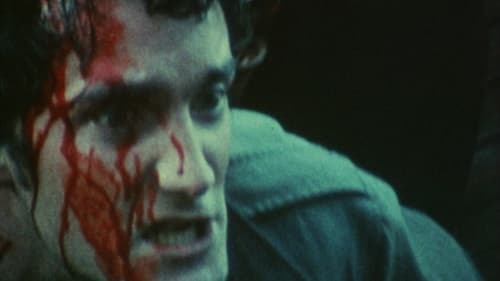
Editor
French essay film focusing on global political turmoil in the 1960s and '70s, particularly the rise of the New Left in France and the development of socialist movements in Latin America.

Writer
French essay film focusing on global political turmoil in the 1960s and '70s, particularly the rise of the New Left in France and the development of socialist movements in Latin America.

Director
French essay film focusing on global political turmoil in the 1960s and '70s, particularly the rise of the New Left in France and the development of socialist movements in Latin America.

Editor
Documentary about the military coup in Chile.

Producer
Chronicles the events immediately surrounding the CIA- supported coup itself.

Editor
This documentary chronicles an Yves Montand concert for Chilean refugees in France.

Director
This documentary chronicles an Yves Montand concert for Chilean refugees in France.

Editor
The two memories

Writer
After a military coup d'état, political dissidents seek refuge in a foreign embassy. Over the next few days, they are joined by more and more people who are fleeing the military assault: teachers, students, intellectuals, artists, and politicians.

Director
After a military coup d'état, political dissidents seek refuge in a foreign embassy. Over the next few days, they are joined by more and more people who are fleeing the military assault: teachers, students, intellectuals, artists, and politicians.

Director
Salvador Allende interviewed by Régis Debray in 1971.

Director
In 1973, after the failure of wage negotiations with the management of the Lip watch factories, the workers went on strike. Marker was responsible for assembling clips from various photographers into one cohesive film.

Writer
This 1973 French documentary explores the conflict between modern values and material comforts in Japan and the more traditional obligations (giri) and culture which are still the real backbone of the society. Among the topics touched on are the Osaka Expo, battles against pollution, and Japanese leftist movements.

Narrator (voice)
This 1973 French documentary explores the conflict between modern values and material comforts in Japan and the more traditional obligations (giri) and culture which are still the real backbone of the society. Among the topics touched on are the Osaka Expo, battles against pollution, and Japanese leftist movements.

Director
This half-hour documentary focuses on Medvedkin and his CineTrain of the 1930s, a sort of mobile film workshop, complete with post-production facilities, animation stations and a large laboratory. Traveling thousands of miles across the Russian countryside, the train stopped to have its filmmakers document Ukranian harvest practices, steel production facilities in southern Russia and other industrial / agricultural matters; With each crew member living in 1 square meter living quarters, all individuals on the train were responsible for various odd-jobs and other practical matters in addition to their own film-making concerns.

Sound
O documentário narra a história do relacionamento da humanidade com o maior e mais majestoso dos mamíferos marinhos, e expõe graficamente seu abate pela indústria pesqueira.

Editor
O documentário narra a história do relacionamento da humanidade com o maior e mais majestoso dos mamíferos marinhos, e expõe graficamente seu abate pela indústria pesqueira.

Writer
O documentário narra a história do relacionamento da humanidade com o maior e mais majestoso dos mamíferos marinhos, e expõe graficamente seu abate pela indústria pesqueira.

Director
O documentário narra a história do relacionamento da humanidade com o maior e mais majestoso dos mamíferos marinhos, e expõe graficamente seu abate pela indústria pesqueira.

Director
Artur London was arrested in 1951 in a Stalinist purge, imprisoned and tortured for two years and forced to confess in the Slansky Trial, one of the last Stalinist "show trials" in Eastern Europe. The documentary explores some of the reasons for the controversy aroused by Costa-Gavras' The Confession, which had been accused of being anti-communist, and it highlights the political importance of filmmaking which, by its nature, is a fiction intended for the general public.

Director
An affectionate portrait of the left-wing publisher and bookshop owner François Maspero, who was a contributor to Far From Vietnam and would later publish the commentary to Le Fond de l’air est rouge. Maspero is one of the most satisfying and likeable of Marker’s films from this period, achieving an exemplary balance of quirky human warmth with a clear and inventive form of political argument.

Editor
An absolute unknown work among Marker’s collaborations, made by filmmakers Bill Stephens, Paul and Carole Roussopoulas with Eldridge and Kathleen Cleaver, Congo Oyé was never completed and long-believed lost by all involved.

Director
Documentary about economic development in Cuba, particularly the effort to boost output of sugar cane. This film is made from a compilation of newsreel footage from the Cuban film institute and from Santiago Alvarez's film Despegue a las 18.00 (Departure 18:00).

Editor
On November the 4th 1969, Carlos Marighella is caught in an ambush and killed by the bullets of 80 policemen armed with revolvers and machine guns. He was considered public enemy number 1 by the Brazilian military dictatorship, which believed that it could quell the urban guerilla movement by liquidating him. This movie, made after his death, reconstructs, through interviews with road companions and friends, the life and political struggle of Carlos Marighella.

Writer
On November the 4th 1969, Carlos Marighella is caught in an ambush and killed by the bullets of 80 policemen armed with revolvers and machine guns. He was considered public enemy number 1 by the Brazilian military dictatorship, which believed that it could quell the urban guerilla movement by liquidating him. This movie, made after his death, reconstructs, through interviews with road companions and friends, the life and political struggle of Carlos Marighella.

Director
On November the 4th 1969, Carlos Marighella is caught in an ambush and killed by the bullets of 80 policemen armed with revolvers and machine guns. He was considered public enemy number 1 by the Brazilian military dictatorship, which believed that it could quell the urban guerilla movement by liquidating him. This movie, made after his death, reconstructs, through interviews with road companions and friends, the life and political struggle of Carlos Marighella.
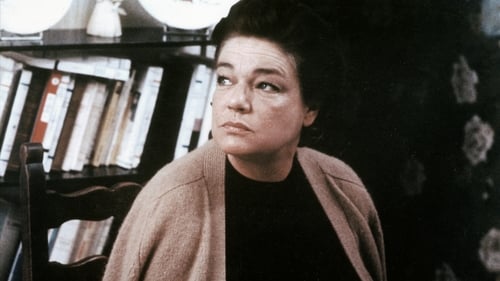
Still Photographer
Anton Ludvik, conhecido como Gerard, é o vice-ministro das Relações Exteriores da Checoslováquia. Ele percebe que está sendo vigiado e seguido. Um dia, ele é detido e colocado numa prisão, em confinamento solitário. Veremos as torturas mentais durante as investigações e como um servo fiel de alto escalão civil, é levado a confessar a traição. Baseado na história verídica do comunista checoslovaco Artur London. (e 16 - Estimado 16 Anos)

Writer
No dia 4 de setembro de 1969, militantes de duas organizações que se propunham a derrubar a ditadura através da luta armada, a Ação Libertadora Nacional (ALN) e o Movimento Revolucionário 8 de Outubro (MR-8), capturaram o embaixador dos Estados Unidos numa rua do bairro de Botafogo, no Rio, exigindo a libertação de 15 presos políticos e a divulgação de um manifesto como condição para a devolução do diplomata. Após a chegada em Cuba, e sua libertação, esses 15 prisioneiros que escaparam a tortura e, possivelmente, morte, vão depor o que eles têm visto e vivido nas prisões brasileiras.

Director
No dia 4 de setembro de 1969, militantes de duas organizações que se propunham a derrubar a ditadura através da luta armada, a Ação Libertadora Nacional (ALN) e o Movimento Revolucionário 8 de Outubro (MR-8), capturaram o embaixador dos Estados Unidos numa rua do bairro de Botafogo, no Rio, exigindo a libertação de 15 presos políticos e a divulgação de um manifesto como condição para a devolução do diplomata. Após a chegada em Cuba, e sua libertação, esses 15 prisioneiros que escaparam a tortura e, possivelmente, morte, vão depor o que eles têm visto e vivido nas prisões brasileiras.
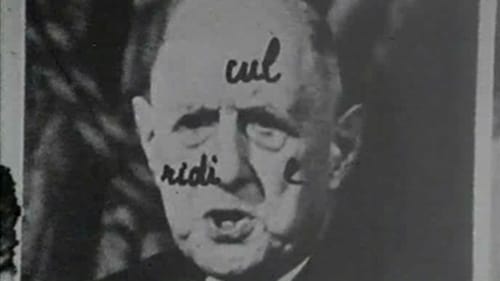
Writer
A series of 41 documentary shorts, directed (without credit) by several famous French filmmakers and each running between two and four minutes. Each "tract" espouses a leftist political viewpoint through the filmed depiction of real-life events, including workers' strikes and the events of Paris in May '68.

Director
A series of 41 documentary shorts, directed (without credit) by several famous French filmmakers and each running between two and four minutes. Each "tract" espouses a leftist political viewpoint through the filmed depiction of real-life events, including workers' strikes and the events of Paris in May '68.

Director
A documentary look at striking workers in a textile plant in Besançon, France, centering on interviews with workers about their motivations for becoming involved with the union and the struggles of their day to day life.
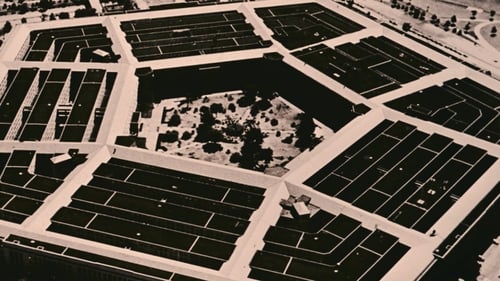
Cinematography
On October 21, 1967, over 100,000 protestors gathered in Washington, D.C., for the Mobilization to End the War in Vietnam. It was the largest protest gathering yet, and it brought together a wide cross-section of liberals, radicals, hippies, and Yippies. Che Guevara had been killed in Bolivia only two weeks previously, and, for many, it was the transition from simply marching against the war, to taking direct action to try to stop the 'American war machine.' Norman Mailer wrote about the events in Armies of the Night. French filmmaker Chris Marker, leading a team of filmmakers, was also there.

Producer
On October 21, 1967, over 100,000 protestors gathered in Washington, D.C., for the Mobilization to End the War in Vietnam. It was the largest protest gathering yet, and it brought together a wide cross-section of liberals, radicals, hippies, and Yippies. Che Guevara had been killed in Bolivia only two weeks previously, and, for many, it was the transition from simply marching against the war, to taking direct action to try to stop the 'American war machine.' Norman Mailer wrote about the events in Armies of the Night. French filmmaker Chris Marker, leading a team of filmmakers, was also there.

Director
On October 21, 1967, over 100,000 protestors gathered in Washington, D.C., for the Mobilization to End the War in Vietnam. It was the largest protest gathering yet, and it brought together a wide cross-section of liberals, radicals, hippies, and Yippies. Che Guevara had been killed in Bolivia only two weeks previously, and, for many, it was the transition from simply marching against the war, to taking direct action to try to stop the 'American war machine.' Norman Mailer wrote about the events in Armies of the Night. French filmmaker Chris Marker, leading a team of filmmakers, was also there.
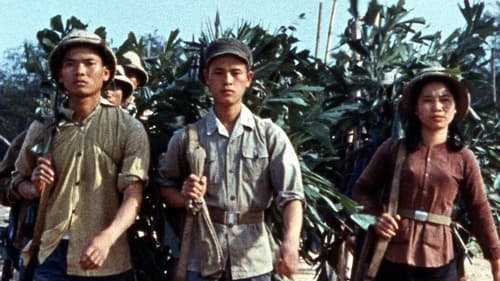
Director
In seven different parts, Godard, Ivens, Klein, Lelouch, Marker, Resnais, and Varda show their sympathy for the North-Vietnamese army during the Vietnam War.

Supervising Film Editor
In seven different parts, Godard, Ivens, Klein, Lelouch, Marker, Resnais, and Varda show their sympathy for the North-Vietnamese army during the Vietnam War.
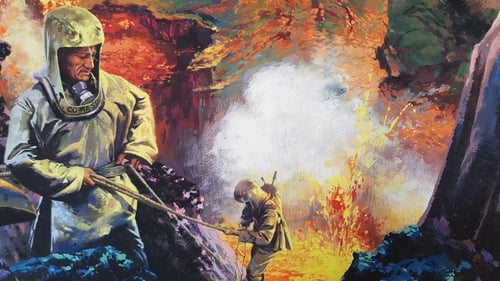
Screenplay
Set in Zaire, the film follows an expedition exploring the crater of the Niragongo volcano of the Virunga chain, whose eruptions are known for their violence and their massive lava flows.
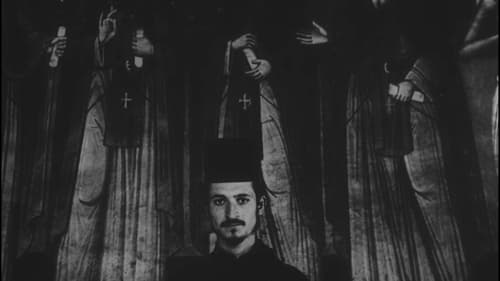
Writer
Composed entirely of still photographs shot by Marker himself over the course of his restless travel through twenty-six countries, If I Had Four Dromedaries stages a probing, at times agitated, search for the meanings of the photographic image, in the form of an extended voiceover conversation and debate between the "amateur photographer" credited with the images and two of his colleagues. Anticipating later writings by Roland Barthes and Susan Sontag (who professed her admiration for the film) If I Had Four Dromedaries reveals Marker's instinctual understanding of the secret rapport between still and moving image.

Director
Composed entirely of still photographs shot by Marker himself over the course of his restless travel through twenty-six countries, If I Had Four Dromedaries stages a probing, at times agitated, search for the meanings of the photographic image, in the form of an extended voiceover conversation and debate between the "amateur photographer" credited with the images and two of his colleagues. Anticipating later writings by Roland Barthes and Susan Sontag (who professed her admiration for the film) If I Had Four Dromedaries reveals Marker's instinctual understanding of the secret rapport between still and moving image.

Director of Photography
A look inside the world of a young Japanese woman during the time of the Tokyo Olympiad (1964), from French New Wave Left Bank director Chris Marker.

Editor
A look inside the world of a young Japanese woman during the time of the Tokyo Olympiad (1964), from French New Wave Left Bank director Chris Marker.

Narrator
A look inside the world of a young Japanese woman during the time of the Tokyo Olympiad (1964), from French New Wave Left Bank director Chris Marker.

Writer
A look inside the world of a young Japanese woman during the time of the Tokyo Olympiad (1964), from French New Wave Left Bank director Chris Marker.

Director
A look inside the world of a young Japanese woman during the time of the Tokyo Olympiad (1964), from French New Wave Left Bank director Chris Marker.

Editor
A young man from the far future, bored by his surroundings, blasts off into space with only his cat and some robots for company. On a distant planet he discovers a serene, tranquil culture and falls in love with a girl. The story follows his problems adjusting to their sociological standards and customs where family units are comprised of sexual groups of eight people.

Cinematography
Jean Ravel's A Distant Gaze (D'un lointain regard) is a 12-minute observance of people on the streets backed by Michel Legrand music.
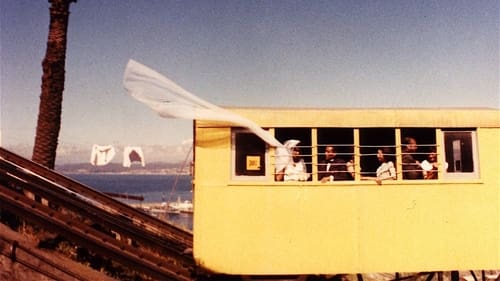
Screenplay
Em 1962, Joris Ivens foi convidado ao Chile para dar aulas e fazer filmes. Junto com os alunos fez este curta-metragem. Comparando a prestigiosa história do porto com a atualidade, este é um retrato da cidade construída sobre 42 colinas, com sua riqueza e pobreza, sua vida cotidiana nas ruas.
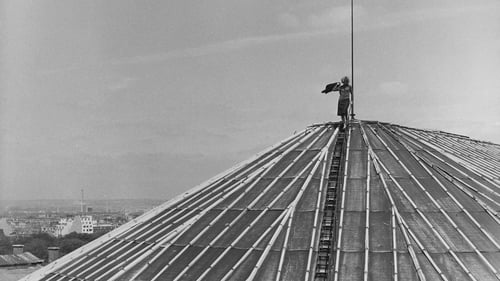
Self / Interviewer (voice)
Candid interviews of ordinary people on the meaning of happiness, an often amorphous and inarticulable notion that evokes more basic and fundamentally egalitarian ideals of self-betterment, prosperity, tolerance, economic opportunity, and freedom.

Writer
Candid interviews of ordinary people on the meaning of happiness, an often amorphous and inarticulable notion that evokes more basic and fundamentally egalitarian ideals of self-betterment, prosperity, tolerance, economic opportunity, and freedom.

Director
Candid interviews of ordinary people on the meaning of happiness, an often amorphous and inarticulable notion that evokes more basic and fundamentally egalitarian ideals of self-betterment, prosperity, tolerance, economic opportunity, and freedom.

Editor
Catherine Varlin's 27-minute Playtime in Paris (1962) is almost a practice run for Le joli mai, a sampling that starts in a classroom and then observes various subjects from afar. A woman is compared to a cat, and then we see a little girl on a playground, kissing, hugging and swatting a little boy companion as if he were a doll-plaything. A supermarket is compared to a flea market; an upscale equestrian event is compared to a soccer match, a comic bullfight and other attractions. Marker edited and Lhomme was the cameraman.
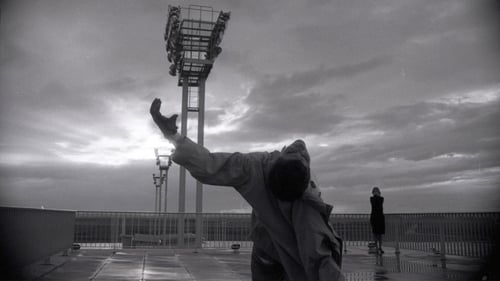
Director of Photography
Na hipotética Paris devastada pela Terceira Guerra Mundial, os poucos humanos sobreviventes pesquisam uma forma de viajar no tempo, para assim poderem mandar alguém para buscar comida, água e talvez uma solução para a terrível posição em que se encontram. Um homem é assombrado por uma vaga lembrança da infância que se provará desastrosa.

Screenplay
Na hipotética Paris devastada pela Terceira Guerra Mundial, os poucos humanos sobreviventes pesquisam uma forma de viajar no tempo, para assim poderem mandar alguém para buscar comida, água e talvez uma solução para a terrível posição em que se encontram. Um homem é assombrado por uma vaga lembrança da infância que se provará desastrosa.

Director
Na hipotética Paris devastada pela Terceira Guerra Mundial, os poucos humanos sobreviventes pesquisam uma forma de viajar no tempo, para assim poderem mandar alguém para buscar comida, água e talvez uma solução para a terrível posição em que se encontram. Um homem é assombrado por uma vaga lembrança da infância que se provará desastrosa.

Director of Photography
A chronicle of the evolution of the Cuban Revolution, ending with the Bay of Pigs incident and including two interviews with Fidel Castro.

Screenplay
A chronicle of the evolution of the Cuban Revolution, ending with the Bay of Pigs incident and including two interviews with Fidel Castro.

Writer
A chronicle of the evolution of the Cuban Revolution, ending with the Bay of Pigs incident and including two interviews with Fidel Castro.

Cinematography
A chronicle of the evolution of the Cuban Revolution, ending with the Bay of Pigs incident and including two interviews with Fidel Castro.

Director
A chronicle of the evolution of the Cuban Revolution, ending with the Bay of Pigs incident and including two interviews with Fidel Castro.

Writer
Working primarily in the arena of nonfiction, Marker rejected conventional narrative techniques, instead staking out a deeply political terrain defined by the use of still images, atmospheric soundtracks, and literate commentary. In Description d’un Combat, Marker’s idiosyncratic style, combining location footage with archival material, builds a complex and personal portrayal. Israel’s demography is explored, from the kibbutzim to the Arab minorities, the orthodox Jews, and the tourists. The “battle” of the title does not refer to the tank-and-artillery variety, but to the inner struggle of Israeli citizens to adapt to a new view of themselves, in a new country.

Director
Working primarily in the arena of nonfiction, Marker rejected conventional narrative techniques, instead staking out a deeply political terrain defined by the use of still images, atmospheric soundtracks, and literate commentary. In Description d’un Combat, Marker’s idiosyncratic style, combining location footage with archival material, builds a complex and personal portrayal. Israel’s demography is explored, from the kibbutzim to the Arab minorities, the orthodox Jews, and the tourists. The “battle” of the title does not refer to the tank-and-artillery variety, but to the inner struggle of Israeli citizens to adapt to a new view of themselves, in a new country.

Writer
This documentary is a general, unquestioning travelog of the United States through the eyes of French director and co-cameraman Francois Reichenbach, a director often fascinated with life in the home of the French-made Statue of Liberty. From the attractions of the West Coast including Disneyland to the skyscrapers of New York, Reichenbach is curious about everything. A prison rodeo (later to come under closer and more critical scrutiny in the '90s), culturally and ethnically mixed neighborhoods, religions outside the mainstream, ghost towns, and the unique world of the American teen are all given a peek. These views of the U.S. are informative though absent of critical analysis.

Director
An inventor builds a homemade spacecraft, and uses it to have various adventures, including peeping at women, visiting ‘human’ planets, and becoming involved in intergalactic warfare.
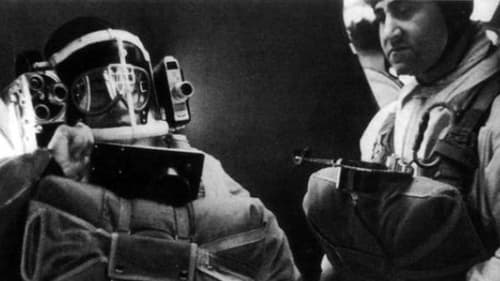
Writer

Writer
Uma reflexão experimental sobre os letreiros de Times Square e a publicidade icônica, o primeiro filme de Klein capta os aspectos simultaneamente decadentes e deslumbrantes da Great White Way de Nova Iorque.

Writer
In a small fishermen's village in the Azores, an enormous whale is being jointed, carved and stocked. Once this task is over, the whalers ready themselves for another hunt, a fascinating but trying and dangerous experience...

Writer
Everyday life of fishermen on Brittany's Ile de Sein.
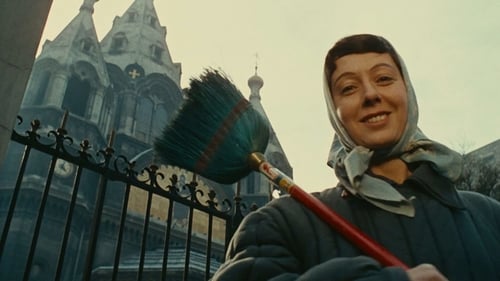
Director
One of Chris Marker's earliest documentaries (1957) and probably one of his best, the hour-long Letter From Siberia mixes new and found footage with inventive commentary, and is especially memorable for a passage in which footage is repeated while the offscreen commentary transforms its meaning with a different ideological interpretation. It is perhaps the earliest example we have of Marker's inimitable essayistic manner, hence an indispensable work.

Writer
A documentary film about occupational diseases shot in 1957 at the Francolor factory in Oissel. It takes the form of a scientific investigation to discover the origin of a mysterious illness that has infected a worker at the factory.

Screenplay
One of the first filmed portraits of a jazz musician.
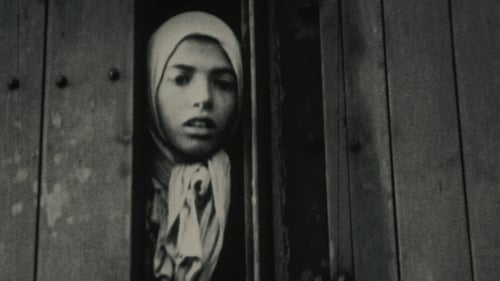
Script Editor
Filmmaker Alain Resnais documents the atrocities behind the walls of Hitler's concentration camps.

Assistant Director
Filmmaker Alain Resnais documents the atrocities behind the walls of Hitler's concentration camps.
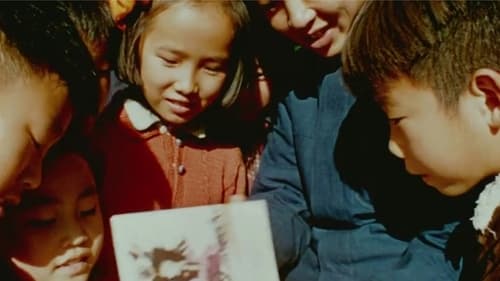
Cinematography
Director Chris Marker begins by recounting his childhood dream of visiting the city of Peking - a city he was once only able to admire in books. The viewer is taken on a journey through this city, as if experiencing it from the mind and through the eyes of Marker. His thoughts and observations about the traditions, history, and banalities of everyday life in Peking are woven together in elegant fashion.

Writer
Director Chris Marker begins by recounting his childhood dream of visiting the city of Peking - a city he was once only able to admire in books. The viewer is taken on a journey through this city, as if experiencing it from the mind and through the eyes of Marker. His thoughts and observations about the traditions, history, and banalities of everyday life in Peking are woven together in elegant fashion.

Director
Director Chris Marker begins by recounting his childhood dream of visiting the city of Peking - a city he was once only able to admire in books. The viewer is taken on a journey through this city, as if experiencing it from the mind and through the eyes of Marker. His thoughts and observations about the traditions, history, and banalities of everyday life in Peking are woven together in elegant fashion.

Writer
Short documentary ordered by the magazine "Présence Africaine". From the question "Why is the african in the Human museum while Greek or Egyptian art are in Le Louvre?", the two directors expose and criticise the lack of consideration for African art. The film was censored in France for eight years because of its anti-colonial perspective.

Director
Short documentary ordered by the magazine "Présence Africaine". From the question "Why is the african in the Human museum while Greek or Egyptian art are in Le Louvre?", the two directors expose and criticise the lack of consideration for African art. The film was censored in France for eight years because of its anti-colonial perspective.

Writer
Olympia 52 is a 1952 French documentary film about the 1952 Summer Olympics in Helsinki, Finland. Olympia 52 was produced by Peuple et Culture, a nonprofit organization, and it was the first feature-length work directed by the French filmmaker Chris Marker, who also co-wrote the narrative and served as one of the production’s four cinematographers.

Director
Olympia 52 is a 1952 French documentary film about the 1952 Summer Olympics in Helsinki, Finland. Olympia 52 was produced by Peuple et Culture, a nonprofit organization, and it was the first feature-length work directed by the French filmmaker Chris Marker, who also co-wrote the narrative and served as one of the production’s four cinematographers.
